Being Queer, Feeling Muslim: Lia Darjes documents gay people and their religion
Queer Muslims who are seeking a safe space to pray, asking the question: am I a sinner or not? Imams identifying as feminists; transgender people who are shaking the traditional and religious understanding of gender roles...
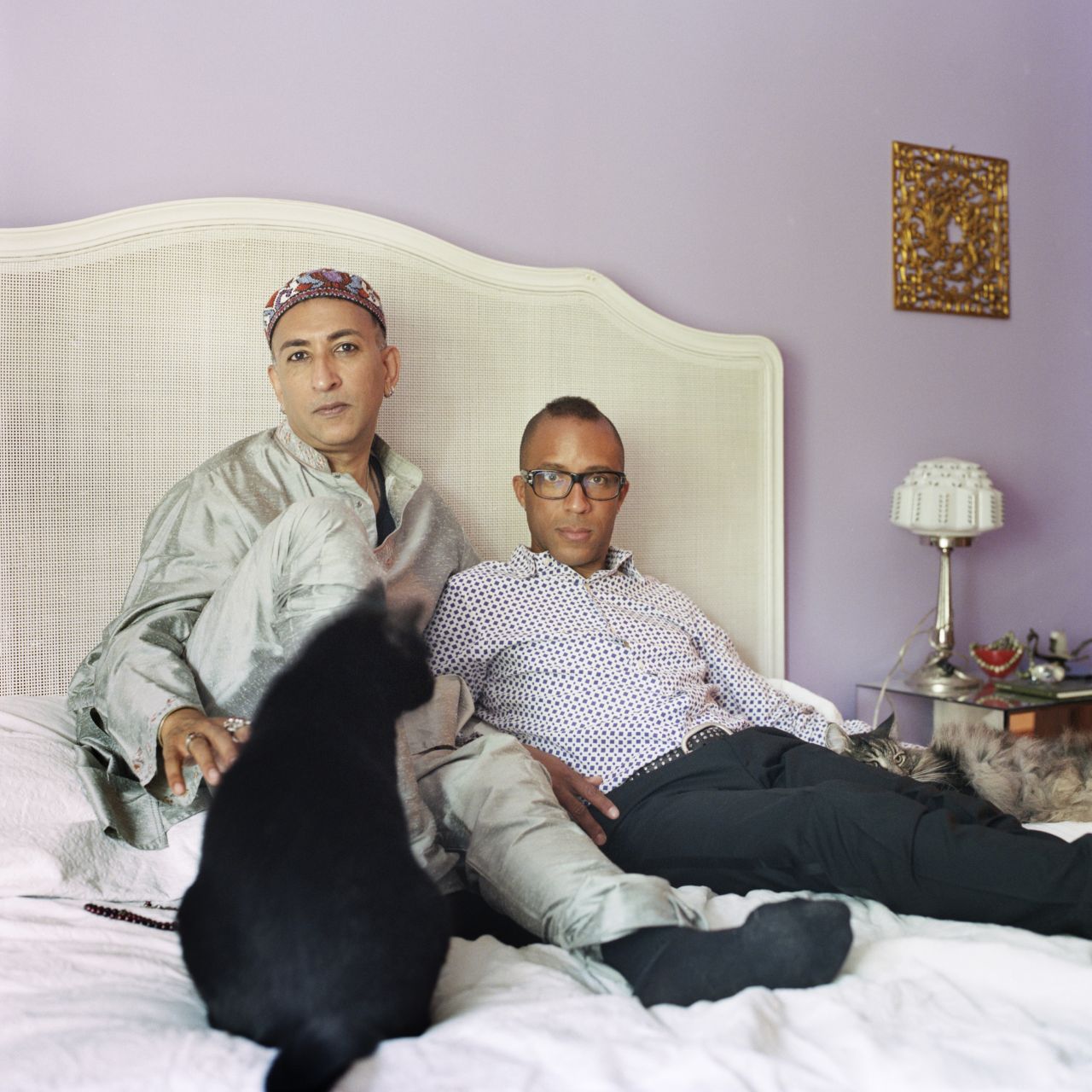
German photographer Lia Darjes met them in different parts of the Western world – France, Germany, Canada, England, the United States – and now shares the stories of those who are building their own progressive and inclusive communities.
"At this time, seven countries with a Muslim majority faith have introduced capital punishment for the 'crime' of homosexual intercourse," says Lia. "While this fact implies that a dominant portion of the Muslim world has embraced a homophobic interpretation of the Quran, there remains an important number of Muslims around the world who don’t accept this view as a fundament of their religion. They battle against homophobia, as much as they battle against islamophobia and racism."
Her series, Being Queer, Feeling Muslim will be on display at FORMAT, the UK's largest photography festival which this year explores the theme of "habitat".
One photograph from her series (as pictured above) features El-Farouk and his husband Troy from Toronto, Canada: "Where I am at today is not necessarily where I started. And I could tell you where I am now and it would sound rather a happy place. But the journey to that place has not been an easy one. I started with the notion that it was sinful [to be gay] and that those who practised it were problematic at best.
"But that didn’t quite seem right in the larger construct of the Quran and the Prophet that I believed to be true and actually had been taught. I don’t believe that homosexuality is a sin because sexuality in Islam is not a sin. Sexuality is something that God has given. And in verse 49.13. Allah says, ‘I created you to different nations and tribes and you may know and learn from each other.’ I just see queer folk as one of those nations or tribes."
All images courtesy of FORMAT | Main image: El-Farouk and his husband Troy © Lia Darjes
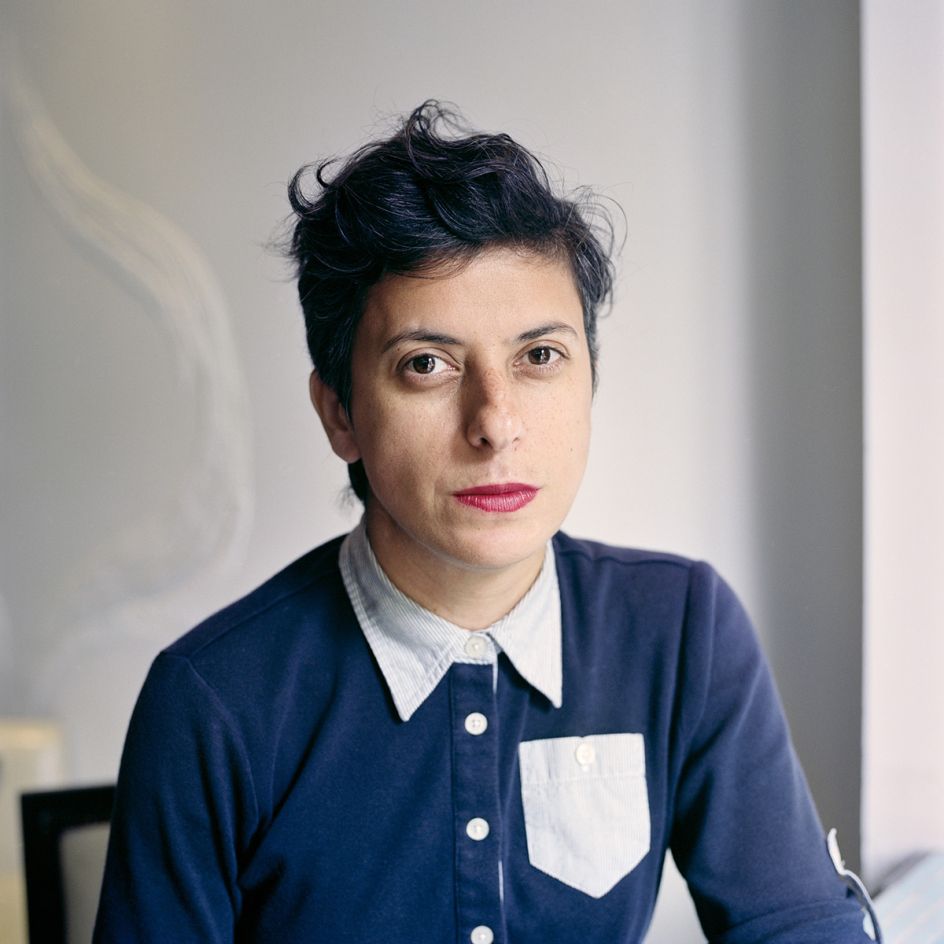
Samira, Toronto © Lia Darjes: “I am from a country where it is punishable by death to be gay. 1979, when the Islamic Revolution began, my family immigrated to Canada, where I grew up pretty secular; maybe that was why I never had that moment of a coming out with my parents, I think they always knew that I am a lesbian. When 9/11 happened, all of a sudden I became Muslim, not because I was behaving differently but because people saw me differently. Just one look at my name and people act differently. Why don’t they understand that there are so many different ways of Islam in different countries, different traditions, different shapes? Why can they accept it for Christianity and Judaism but not for Islam.”
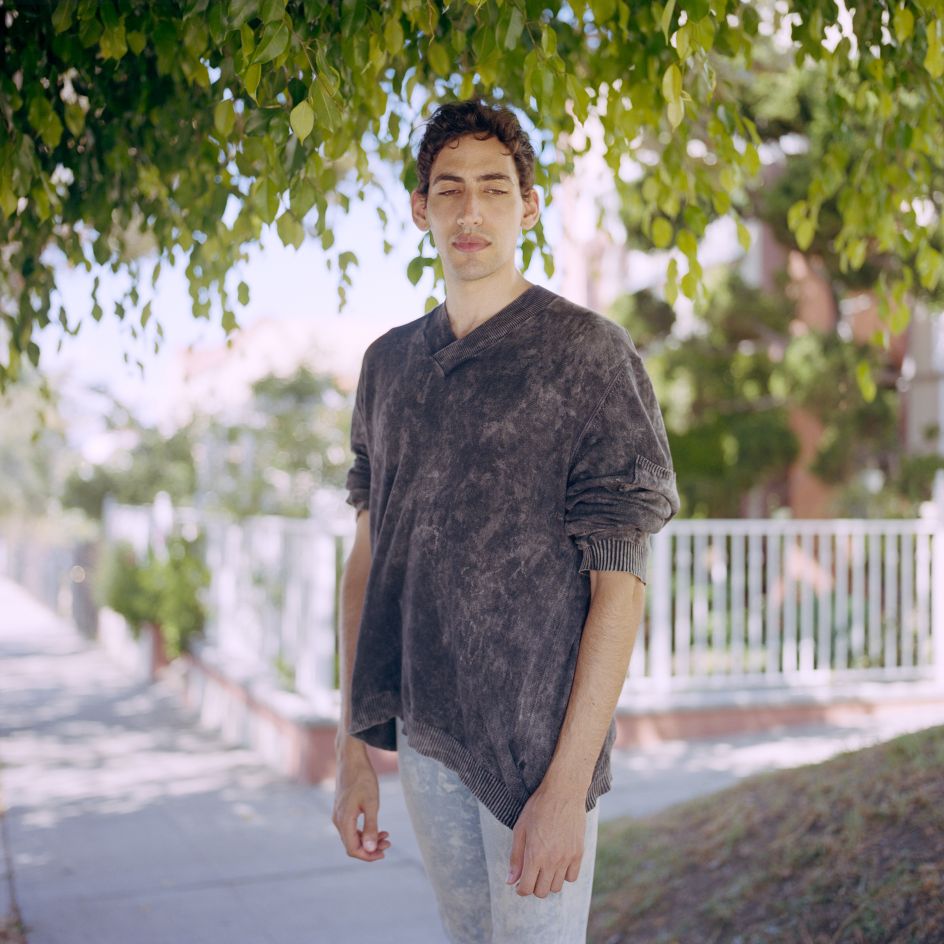
Amin, Los Angeles © Lia Darjes: “I find myself in the middle of two fronts – sometimes fighting within the Muslim community for more tolerance of LGBT people, and at other times fighting queer people and non-Muslims against the rampant Islamophobia in this country. I feel like I’m obligated to educate people on both sides. At the same time, I don’t feel the need to be validated by anyone. I don’t feel any great inner turmoil because of the various components of my identity. Like, I don’t necessarily feel excited by the prospect of a mosque for gay people. If there was a big mosque and people went and prayed together, I would still feel uncomfortable – gay or not. But I feel like people should have the right to do that. Is that weird? It sounds like I am in denial, doesn’t it?”
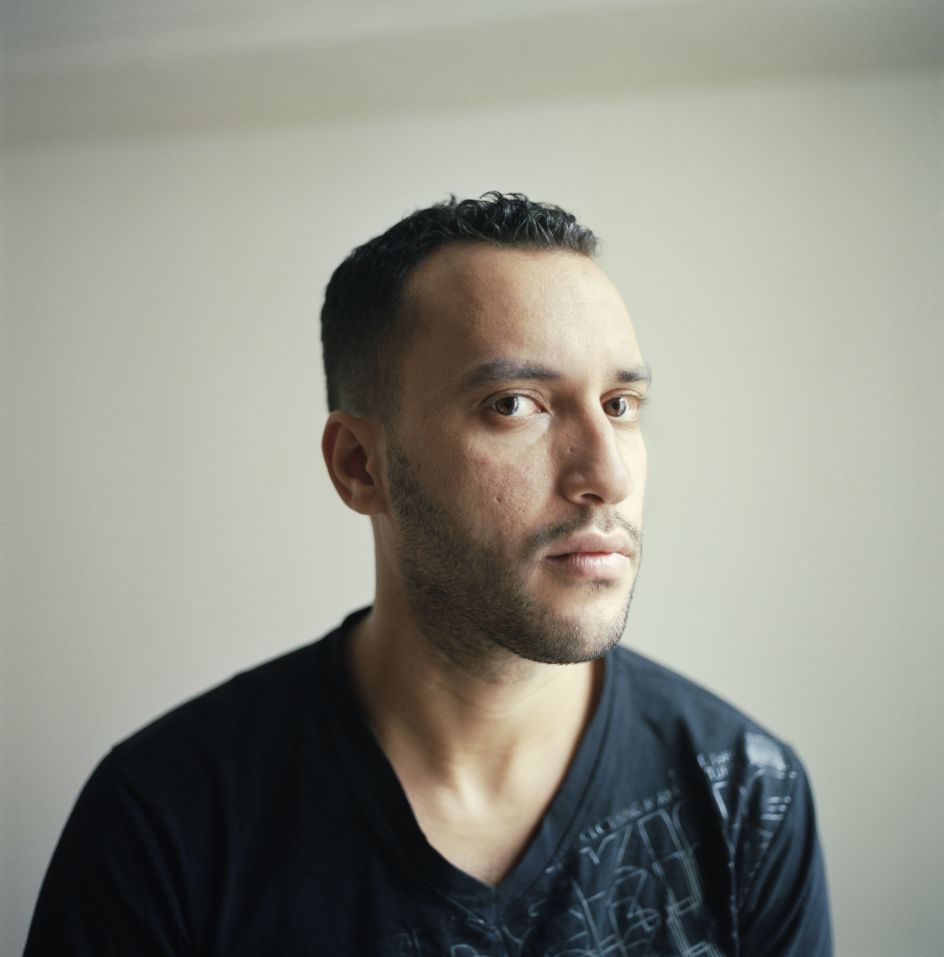
Hassan, Paris © Lia Darjes: “I still consider myself cultural Muslim, but I am not a believer anymore. In a certain period in my life, my friends may have called me an on-off Muslim. During this time, I was not really believing anymore but still wanted to experience a more moderate and contemporary Islam – an Islam of today. I wanted to meet people who manage to be queer and Muslim at the same time. But I still think it is better for homosexual people not to believe in a God in any way. If you do, it is very difficult. It creates a lot of problems – psychological problems. The main reason why I quit Islam is because I am homosexual. I don’t manage to be both. It was very difficult for me not to believe that there is a God and that Mohammed is his prophet, hard not to believe in a lot of things that are comfortable. Not believing in destiny. Not believing that anything that happens to you is not already planned by God for you. Not believing that there is a judge that judges what happens on earth. I needed a lot of time to really consider myself an unbeliever. I don’t miss my faith – not believing is more comfortable for me than believing.”
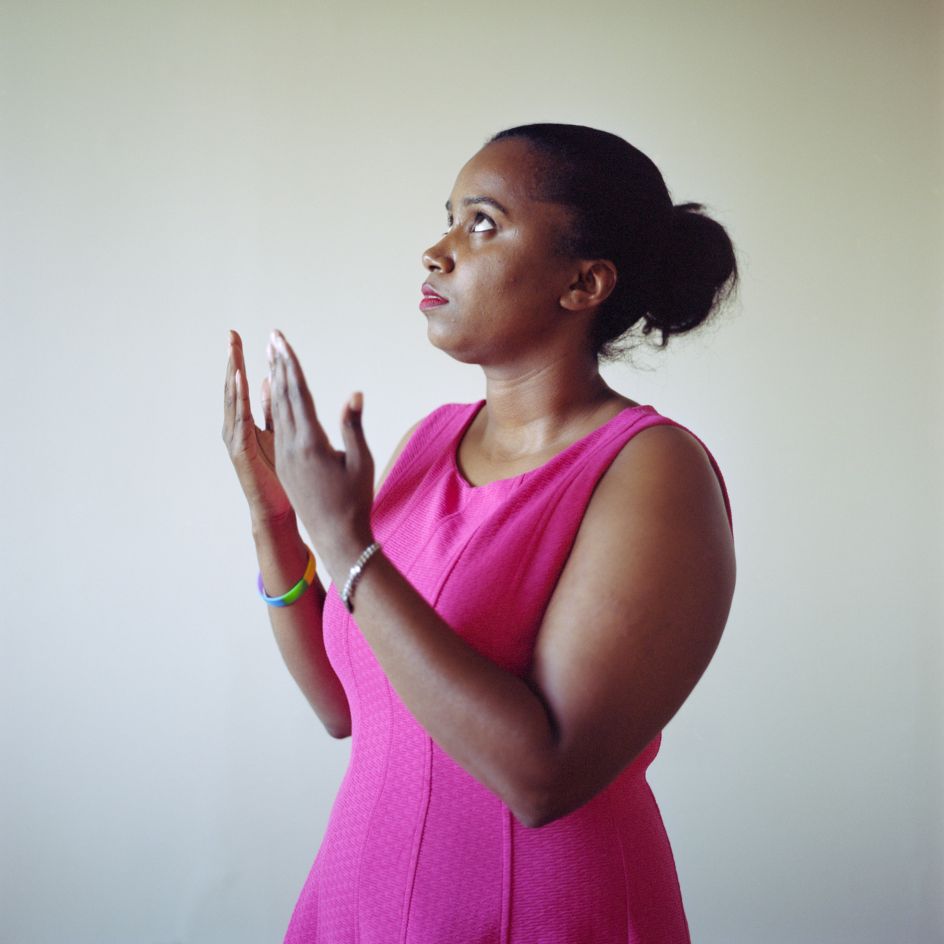
Saadiya, Toronto © Lia Darjes: “Being queer and Muslim means to me that I can be who God intended me to be. And for me, that is an educated woman, compassionate, caring and loving other people. I used to think that it was a negative thing, but the more I learned about myself and the more I learned about queer community, I learned that we are just like everybody else. We have the same needs that other people have. We have the same right as everybody else.”
![Jason, Los Angeles © Lia Darjes: “When I converted to Islam a couple of years ago, it [being gay] wasn’t an issue for me. I had just realized that I wanted to be a Muslim, and being a Muslim at that moment, as a very early young Muslim, it was all about my connection with God, and getting close to God. A month later, I realized that I needed to look to what the Quran and everybody says about being gay. … And everything was extremely negative, very, very negative. And it was very disturbing to me.”](https://www.creativeboom.com/upload/articles/8f/8fe7526363bb055de615db7fe36fb31a17a5b453_944.jpg)
Jason, Los Angeles © Lia Darjes: “When I converted to Islam a couple of years ago, it [being gay] wasn’t an issue for me. I had just realized that I wanted to be a Muslim, and being a Muslim at that moment, as a very early young Muslim, it was all about my connection with God, and getting close to God. A month later, I realized that I needed to look to what the Quran and everybody says about being gay. … And everything was extremely negative, very, very negative. And it was very disturbing to me.”
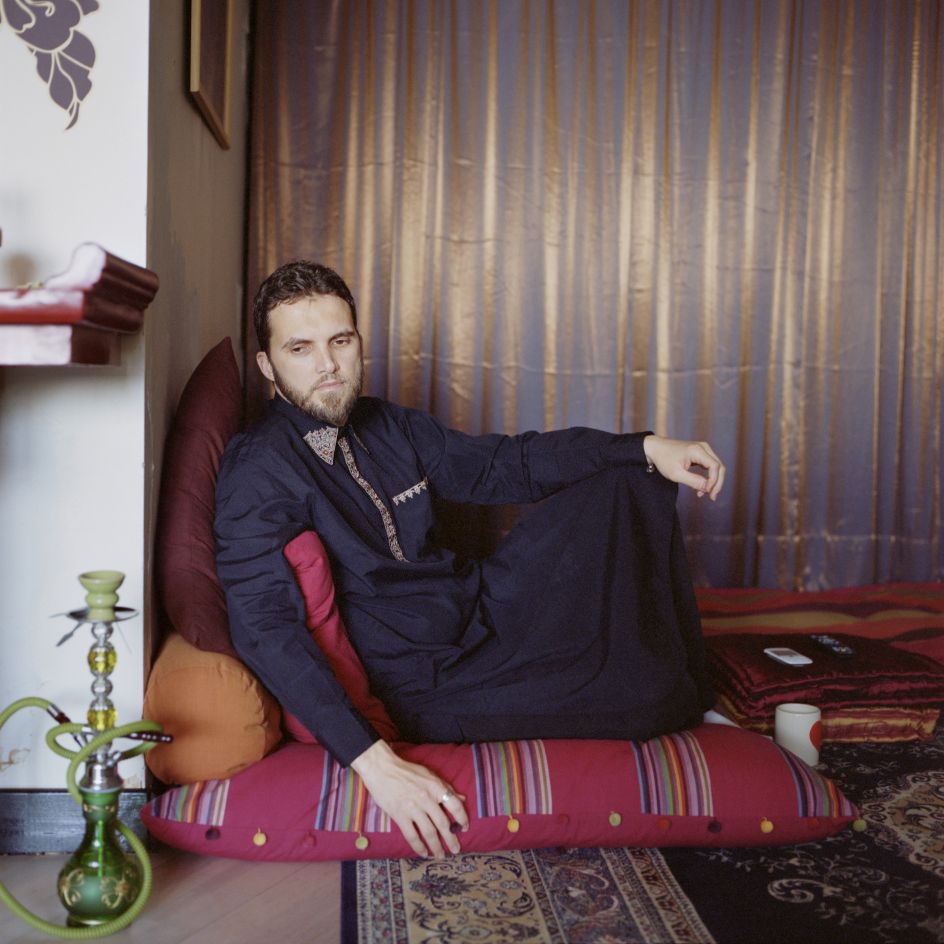
Ludovic, Paris © Lia Darjes: “In 2012, after I did not find one single imam in France who was willing to bury a transsexual Muslim, I founded a mosque that is open to all in Paris. The reactions were quite vehement. Being Muslim, Arabic and gay and thus a member of several minority groups opened my eyes: Minorities are being discriminated against particularly in times of economic crisis. We have to know more about Islam, and we have to understand who we actually are in order to fight homophobia.”
![Joey, Los Angeles © Lia Darjes: “I was a pretty strong atheist and then I came across a copy of Michael Muhammad Knight’s novel ‘The Taqwacores’ about a fictional Muslim punk movement that kind of became true after being published. I purchased it, read it in just a couple of days and it opened my eyes a lot more to the religion.[…] In a way, I was very orthodox in my thoughts when putting the LGBT community and Islam together. Because on first sight, it looks dark when you look in the Quran and the Hadiths, it clearly can’t be OK. But then you can read other sources, other verses of the Quran, other Hadiths, and it gets clear that it is all a question of how you decide to interpret it.”](https://www.creativeboom.com/upload/articles/cf/cf6d30734bccf4398a1780c642e51431b3def4d1_944.jpg)
Joey, Los Angeles © Lia Darjes: “I was a pretty strong atheist and then I came across a copy of Michael Muhammad Knight’s novel ‘The Taqwacores’ about a fictional Muslim punk movement that kind of became true after being published. I purchased it, read it in just a couple of days and it opened my eyes a lot more to the religion.[…] In a way, I was very orthodox in my thoughts when putting the LGBT community and Islam together. Because on first sight, it looks dark when you look in the Quran and the Hadiths, it clearly can’t be OK. But then you can read other sources, other verses of the Quran, other Hadiths, and it gets clear that it is all a question of how you decide to interpret it.”
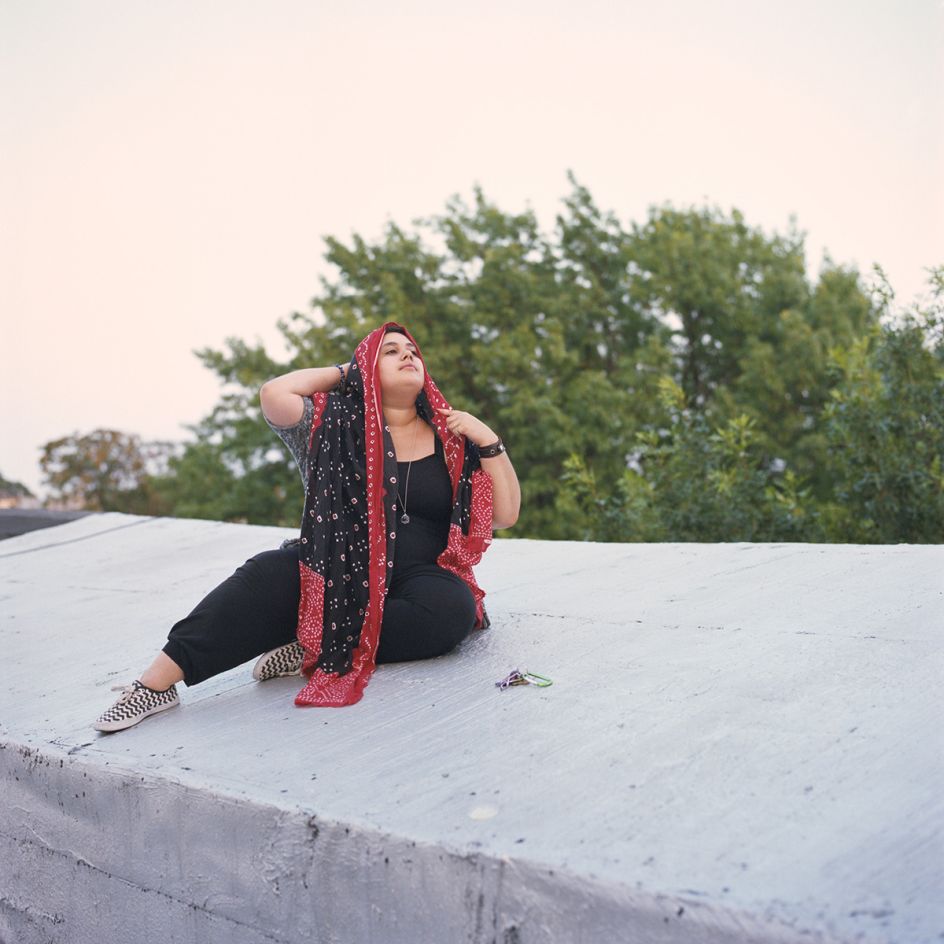
Sara, New York © Lia Darjes: “For me, it has never been about reconciling. I feel both identities – being queer and Muslim – complete each other. And that I am able to be my best self when I embrace a 100% of what I represent. I celebrate my queerness and I celebrate my Islam. For me, there has never been a problem with me being queer in my Muslim community. Many people think that the Muslim community is one big thing, but it is not. We each create our own community. I don’t know all of the almost two billion other Muslims. I know only those that I see every day as a part of my local community, who love me and who are there for me knowing my full self. For me, what has often been a problem is when I go to certain queer spaces where I experience a lot of Islamophobia. There, they usually think it is not possible to be Muslim and queer. I have to prove, then: It is possible, because I am here and I know many more people like me. Islam has never been a part of my life that I felt limited by, it has always been a source of strength. I feel that I come out as Muslim rather than coming out as queer. Many people have a very strong preconception of what a Muslim woman looks like and how she behaves. And though, when I actually share this with people as something that is really important to me, they are often very confused.”




 by Tüpokompanii](https://www.creativeboom.com/upload/articles/58/58684538770fb5b428dc1882f7a732f153500153_732.jpg)


 using <a href="https://www.ohnotype.co/fonts/obviously" target="_blank">Obviously</a> by Oh No Type Co., Art Director, Brand & Creative—Spotify](https://www.creativeboom.com/upload/articles/6e/6ed31eddc26fa563f213fc76d6993dab9231ffe4_732.jpg)








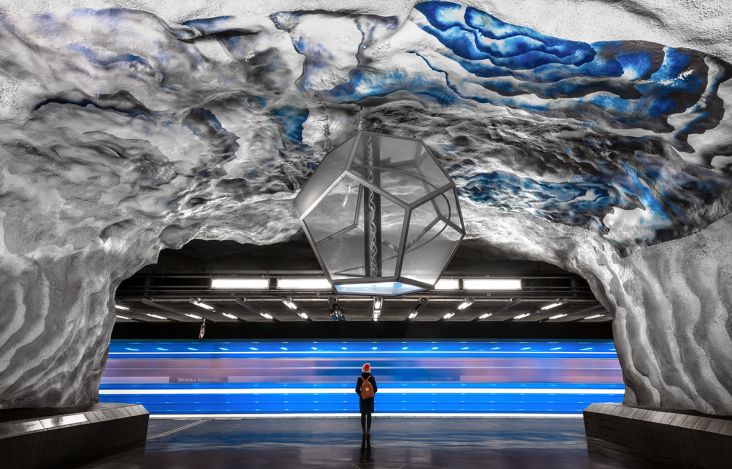
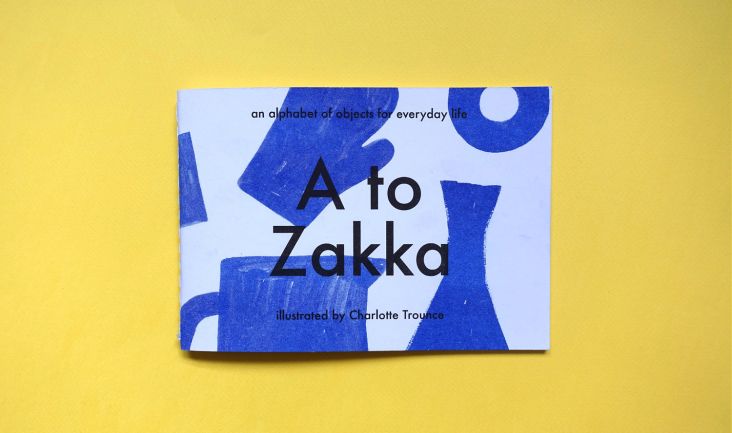
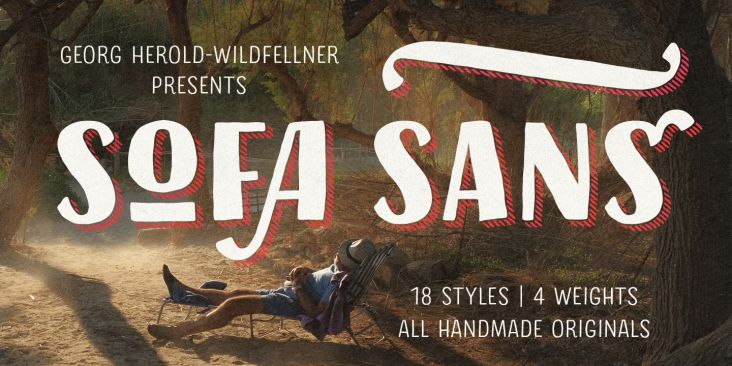
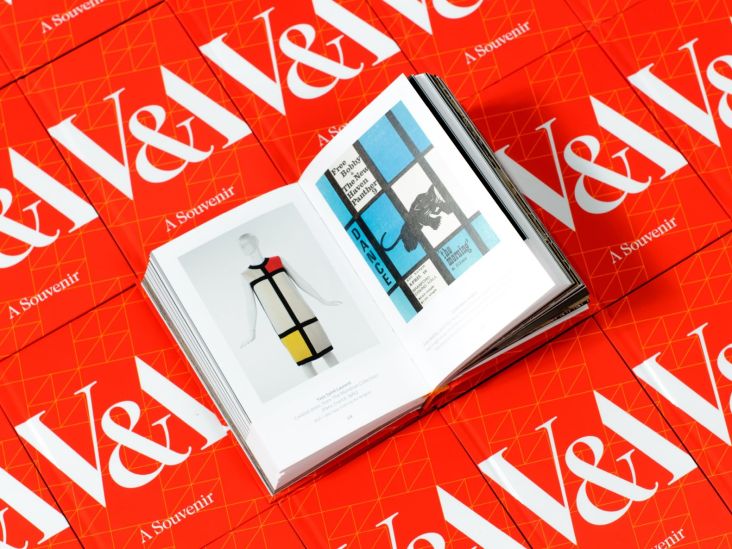
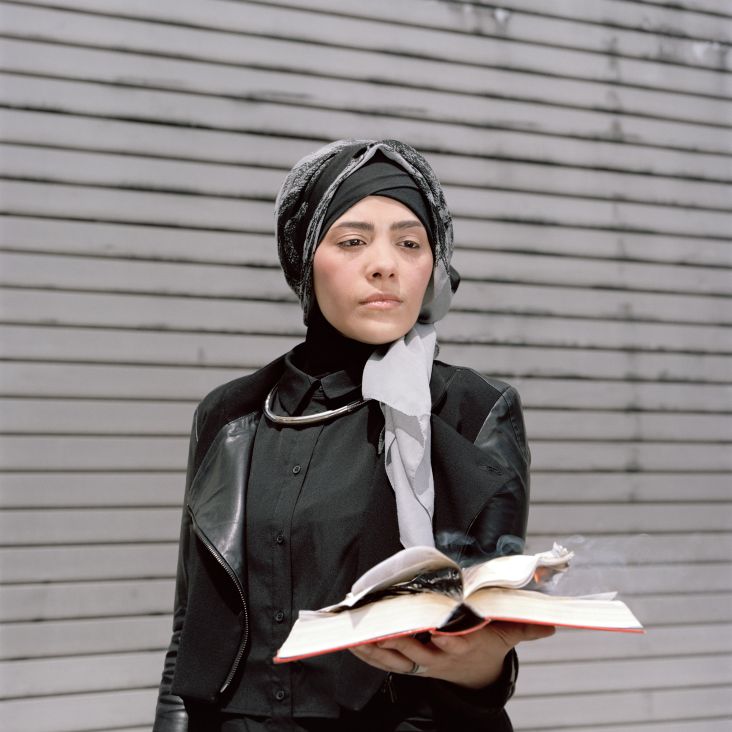
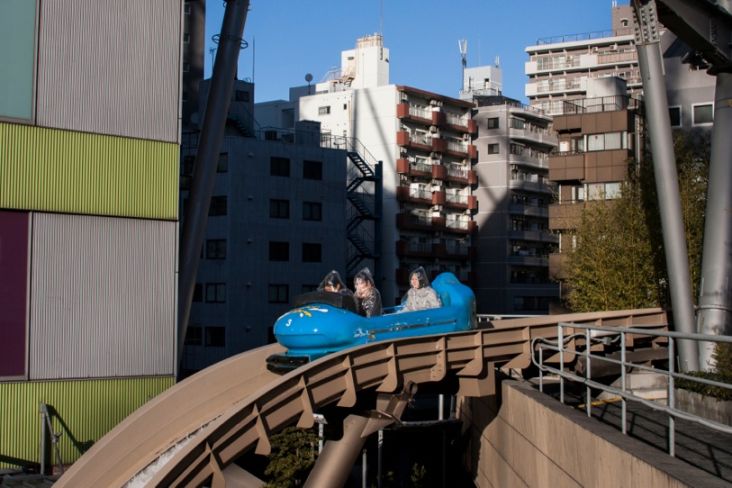
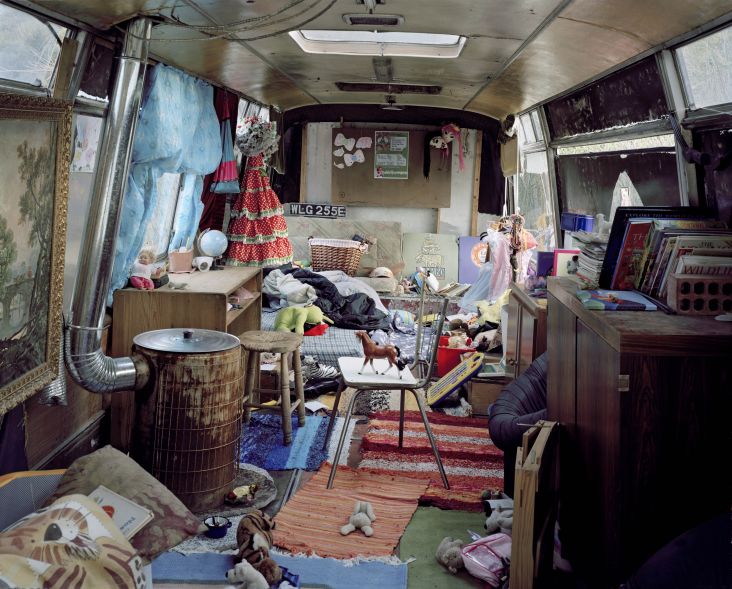
](https://www.creativeboom.com/upload/articles/af/afe03826eb65d6ab8b133c904905f16897badb3c_732.jpeg)
